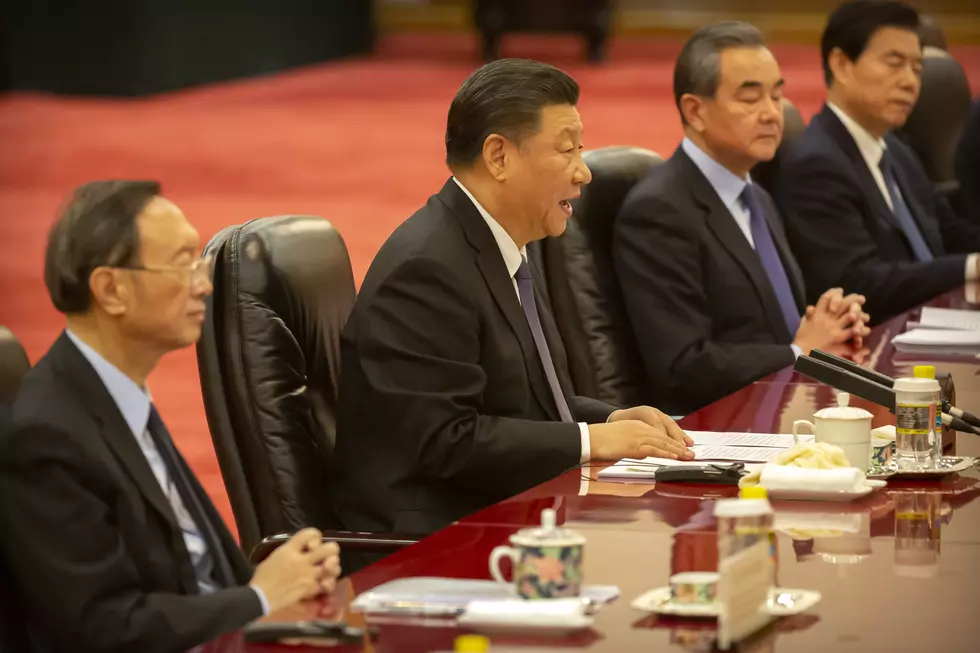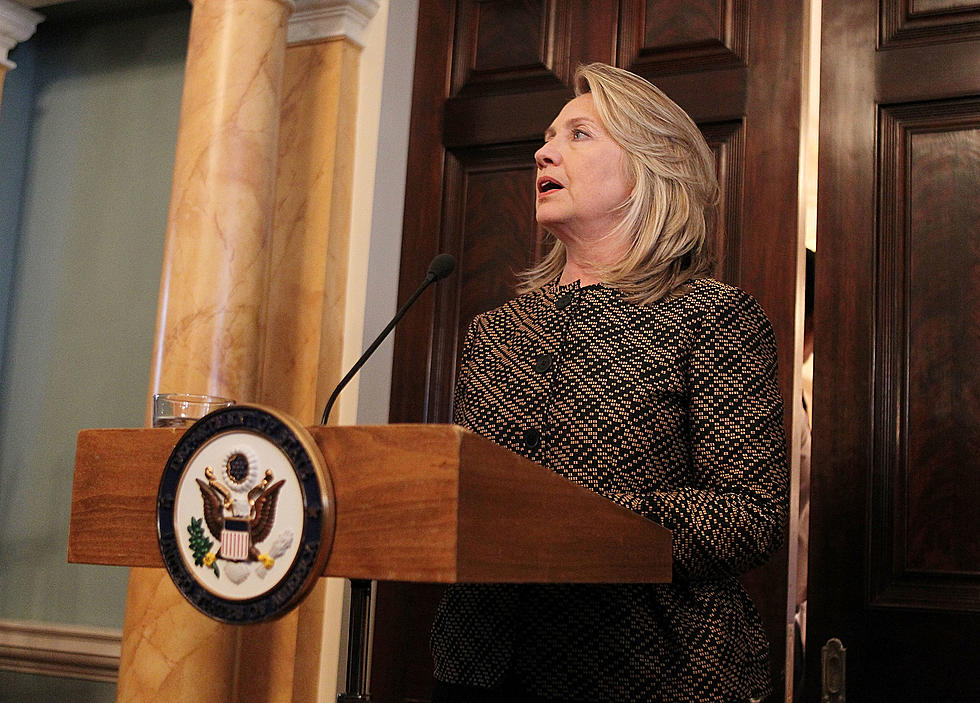
North Korea Nuclear Impasse Looms Over U.S.-Japan Talks
WASHINGTON (AP) — Stalled negotiations over dismantling North Korea's nuclear program loomed over high-level talks between the U.S. and Japan on Friday.
Just a day after North Korea called for Secretary of State Mike Pompeo to be removed as President Donald Trump's top negotiator, Pompeo and acting Defense Secretary Patrick Shanahan were meeting at the State Department with their Japanese counterparts, Taro Kono and Takeshi Iwaya, to plot a way forward.
U.S. officials say they remain open to resuming the talks with North Korea but Pompeo has not yet reacted to the North Korean demand, which followed what it said was a test of a new tactical weapon.
The nuclear talks have been at an impasse since Trump's second summit with North Korean leader Kim Jong Un failed to reach an agreement in Vietnam in late February over sharp disagreements about sanctions. The U.S. is refusing to ease major sanctions until North Korea completely and verifiably dismantles its nuclear weapons and long-range ballistic missiles while the North wants significant sanctions to be lifted before the process is completed.
Japan has advocated a tough approach to the North in contrast to South Korea, which has pushed for a step-by-step approach that would lift some international sanctions as incentives. Pompeo has said some minor relief, including the possible easing of travel restrictions, could be considered in the short- to medium-term but that the crippling sanctions the North most wants removed will not be lifted until it fulfills what he says have been Kim's repeated pledges to Trump to completely denuclearize.
On Thursday, North Korea said it had test-fired a new type of "tactical guided weapon," its first such test in nearly half a year, and demanded that Pompeo be excluded from future negotiations. Although the test didn't appear to be of a banned mid- or long-range ballistic missile that could scuttle chances of resuming the negotiations, it allowed North Korea to show its people it is pushing ahead with weapons development and reassuring hardline military officials worried that diplomacy with Washington is a sign of weakness.
North Korea's foreign ministry accused Pompeo of playing down the significance of comments by Kim, who said last week that Washington has until the end of the year to offer mutually acceptable terms for an agreement to salvage the high-stakes nuclear diplomacy. In a statement, the director general of the American Affairs Department Kwon Jong Gun said that Pompeo was "talking nonsense" and misrepresenting Kim's comments.
During a speech at Texas A&M University on Monday, Pompeo said Kim promised to denuclearize during his first summit with President Donald Trump and that U.S. officials were working with the North Koreans to "chart a path forward so we can get there."
"He (Kim) said he wanted it done by the end of the year," Pompeo said. "I'd love to see that done sooner."
The North Korean statement said Pompeo was "misrepresenting the meaning of our requirement" for the negotiations to be finalized by the year's end, and referred to his "talented skill of fabricating stories." It said Pompeo's continued participation in the negotiations would ensure that the talks become "entangled" and called for a different counterpart who is "more careful and mature in communicating with us."
The State Department responded in a short statement that "We are aware of the report. The United States remains ready to engage North Korea in a constructive negotiation."
In a speech before his rubber-stamp parliament last week, Kim said he is open to a third summit with Trump, but only if the United States changes its stance on sanctions enforcement and pressure by the end of the year.
Meanwhile, Russia announced that Kim will visit later this month for talks at the invitation of President Vladimir Putin, but gave no further details. Pompeo's special envoy for North Korea Stephen Biegun wrapped up a visit to Moscow on Thursday during which he met Russian officials to discuss the state of the negotiations, the State Department said.
More From K2 Radio









